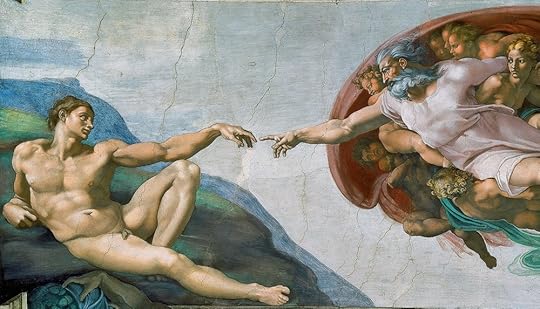God: A Being, Non-Being, Hyper-Being, Ground of Being, or Event?

I’ve been spending a lot of time pulling together the relevant material for Atheism for Lent. A de-centering practice I’ve been leading on and off for almost twenty years now. I’m constantly trying to improve on the event and regularly change the material on offer. Now that I’ve completed work for the 2016 on-line version I thought I’d share the basic direction with you.
Week 1 - Problematizing God talk (God as a Being)
To begin with we’ll be spending a week delving into to some thinkers who have problematized our traditional common sense idea of God-talk. What we might also call religious approaches to the question of God. The types of argument people will encounter in the first week reflect what we are likely most familiar with because of the popularity of debates between theists and atheists. This week will help set up the future weeks, where we’ll delve into thinkers (both philosophical and theological) who move beyond these distinctions.
Week 2 - Advent of Modern Atheism 1 (God as Projection)
In the second week we go on to explore two thinkers who influenced the direction of religious critique in the 20th century. By looking at Feuerbach and Marx we witness an important change in the tone and tenor of religious critique. We find here, not only the seeds of a vast and deep critique of religion, but also the possibility of a faith that could be described as religionless.
Week 3 - Advent of Modern Atheism 2 (God as Projection)
When we move into the third week we’ll continue to with two more of the famous “Masters of Suspicion” by looking at Freud and Nietzsche, both of whom offered interpretations of Christianity that was sensitive to the realm of unconscious drives and desires. These thinkers had a profound sensitivity to the hidden realities that can cultivate, motivate and sustain religious belief. Their work marks an important milestone in religious critique because of the way that their approaches pay close attention to the reasons operating beneath, behind and within our conscious commitments.
Week 4 - Towards Theological Atheism (God as Hyper-Being)
By the forth week we move away from more strictly philosophical forms of atheism toward more theological forms. Like philosophical atheism, theological atheism has a rich and complex tradition spanning millenia. While those theologians who fit into this type of thinking begin their genealogy with the biblical text itself, we’ll concentrate on a few figures who were important in the development of its contemporary expression. While New Atheism attempts to distance itself from religion, seeing religion as inextricable linked to the idea of God as a being, here we explore a theological approach that sees this critique as a step on the way to a very different notion of God. God as more-than-being or hyper-being. A perspective that opens up the door to a more theological type of atheism or a/theism.
Week 5 - Theological Atheism (God as Ground of Being)
After this we will delve into the classic 20th century expression of Radical Theology. In the 1960’s Radical Theology achieved a certain fame and popular interest in the West. In many ways this was a point in which the movement matured and gained its distinctive voice, primarily through the work of Thomas Altizer, who is widely taken to be the main figure in the movement. This week’s reflections will help us explore an idea that moves beyond the notion of God as hyper-being, to the conception of God as ground of being. This more existential approach can be seen as a type of bridge between more classical notions of God as a being (the Supreme Being), toward approaches that don’t use the term “being” at all.
Week 6 - Contemporary Theological Atheism (God as Event)
Recently a form of atheist theology could be said to be hitting a second golden age due to the number of academics, activists and popular writers innovating within the tradition. In this final week we’ll introduce some of these figures and touch on some ways of approaching the subject of God that don’t operate around the term “being” at all. In this type of theology, atheism is no longer an enemy of faith, a sparring partner with it, or a friend of it, but rather a necessary part of faith’s very DNA.
While the practice is designed to be personally challenging and transformative, it also aims to be intellectually rewarding. Indeed, by the end of the forty days everyone will understand what is meant when “God” is referred to as a being, a non-being, a hyper-being, the ground of being or as harboring an event or manifesting the Real. If you’d like to sign up, click here.
Peter Rollins's Blog
- Peter Rollins's profile
- 314 followers



